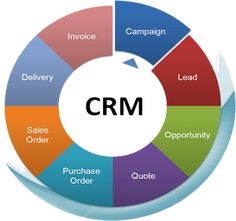When it comes to managing relationships with donors, volunteers, and beneficiaries, non-profit organizations face unique challenges. Unlike for-profit businesses, non-profits often operate with limited resources and have specific needs that require tailored solutions. This is where Customer Relationship Management (CRM) software comes into play. Here’s a guide to help non-profits choose the best CRM software for their needs.
1. Understand Your Needs
Before selecting a CRM, it’s crucial to understand what your organization needs from the software. Consider the following:
- Donor Management: Tracking donations, managing donor information, and reporting on donor activity.
- Volunteer Management: Scheduling, tracking volunteer hours, and managing volunteer information.
- Fundraising Campaigns: Managing and tracking fundraising campaigns and events.
- Communication: Tools for email marketing, newsletters, and other forms of outreach.
- Reporting and Analytics: Generating reports to analyze donations, campaign performance, and other key metrics.
2. Look for Non-Profit Specific Features
Not all CRM systems are created equal. Some are specifically designed with non-profits in mind. Look for features such as:
- Donation Tracking: The ability to track one-time and recurring donations, generate tax receipts, and manage donor relationships.
- Event Management: Tools to plan and manage fundraising events, including registration, ticket sales, and attendee tracking.
- Grant Management: Features to track grant applications, deadlines, and reporting requirements.
- Customizable Reporting: Non-profits need to generate various reports for different stakeholders. Look for CRMs that offer customizable reporting options.
3. Consider Budget and Pricing
Many CRM systems offer discounted or even free versions for non-profits. However, it’s important to evaluate the total cost of ownership, including any additional fees for premium features, user licenses, or support. Some CRM solutions offer tiered pricing based on the size of the organization or the number of users.
4. Evaluate Integration Capabilities
Non-profits often use multiple systems for different functions (e.g., email marketing, accounting). Ensure the CRM you choose integrates well with other tools you use. This will help streamline processes and reduce data silos.
5. User-Friendliness and Support
The usability of the CRM is crucial. A system that is too complex may lead to poor adoption rates among staff and volunteers. Look for a CRM with an intuitive interface and comprehensive support resources. Training and customer support are vital, especially if you have staff or volunteers who are not tech-savvy.
6. Scalability
Your organization’s needs may grow over time. Choose a CRM that can scale with your organization, offering additional features and user capacity as you expand.
7. Security and Compliance
Handling donor and beneficiary information requires a high level of security. Ensure the CRM complies with data protection regulations and offers robust security features to protect sensitive information.
8. Read Reviews and Case Studies
Look for reviews and case studies from other non-profits that have used the CRM. Their experiences can provide valuable insights into how the CRM performs in real-world scenarios and whether it aligns with your organization’s needs.
Popular CRM Options for Non-Profits
Here are a few CRM options commonly recommended for non-profits:
- Salesforce Non-Profit Cloud: Offers a comprehensive suite of tools tailored for non-profits, including donation management, campaign tracking, and reporting.
- Bloomerang: Focuses on donor management and engagement, with tools for tracking donations, managing relationships, and analyzing fundraising performance.
- NeonCRM: Provides a wide range of features for donor management, event planning, and communication, with flexible pricing options for non-profits.
- HubSpot for Non-Profits: Offers free CRM tools with additional features available through paid plans, including contact management and marketing automation.
Conclusion
Choosing the right CRM software for your non-profit organization involves assessing your specific needs, evaluating available features, and considering factors such as budget and integration. By taking the time to thoroughly evaluate your options, you can select a CRM that will enhance your organization’s efficiency and effectiveness in managing donor relationships and achieving your mission.
